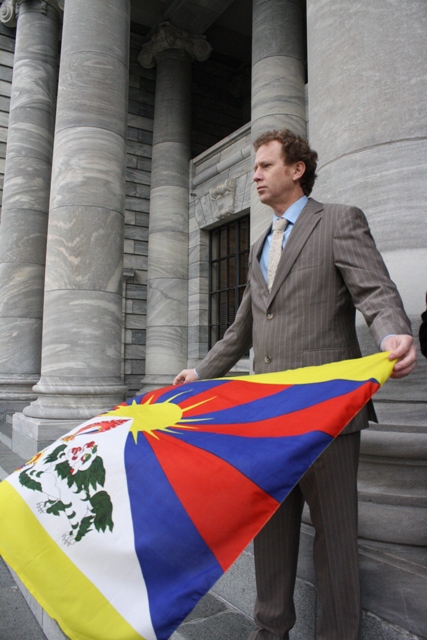by Grant Morgan
Last week, the NZ Council of Trade Unions released a second draft of their Alternative Economic Strategy.
Sound boring?
Actually, the CTU’s document could flag a major leftwards turn by the peak leadership of our union movement.
After a quick read of their revised strategy paper, here are some of my initial thoughts:
HOLISTIC ALTERNATIVE
The CTU is looking to embrace a holistic alternative to neoliberal capitalism, which is exploiting workers and nature to breaking point.
And their alternative vision seems to be growing more staunch over time. In the eight months since the CTU’s first go at crafting an Alternative Economic Strategy, its content and tone have become stronger.
For instance, the CTU has zeroed in on financialisation, the central pillar of neoliberal capitalism. The CTU is now calling for the immediate reduction and gradual elimination of GST, the introduction of a “financial activities tax” and other measures to curb the power of the speculators.
The second draft still contains structural weaknesses which flow from the CTU opposing capitalism’s neoliberal agenda without rejecting capitalism as a system.
Such weaknesses, however, should not obscure the positive potential of the CTU’s Alternative Economic Strategy. A finished manifesto is scheduled for signoff by CTU affiliates within the next month.
Top union leaders appear to be equipping themselves for a strategic showdown with neoliberalism.
That may well herald a historic break with the CTU’s past practice of ducking a frontal battle against neoliberal orthodoxy despite grumbling about market extremism and skirmishing around specific issues.
POPULAR DISCONTENTS
Two days after the 2010 budget’s hike in GST, Socialist Worker and the Alliance launched a tax justice petition. Calling on Parliament to axe GST from food and tax financial speculation, the petition is already drawing wide support.
Our crowded street stalls allow me and other petitioners to hear the voices from below.
What do we hear? Rumblings of discontent over belt tightening, rising prices, lowly status, community breakdown, corporate greedies, unfair laws and deaf politicians.
These popular discontents indicate the broad constituency for change that could be mobilised by a CTU showdown with market extremism. The union movement would start to regain a central role in New Zealand society.
And the CTU’s strategic shift has the potential to reshape New Zealand politics in ways that benefit the multitudes, such as:
• Bolstering the Labour Party’s network of left activists and sympathetic MPs.
• Eroding the Labour Party as an institutional barrier to mass political action.
• Growing the institutional basis for a broad left party that fights neoliberalism.
JOINT EFFORTS
So will the CTU’s new words be followed by inspiring deeds? We cannot know for sure until after CTU affiliates endorse the Alternative Economic Strategy and CTU leaders have the chance to make it fly.
Meanwhile, there’s plenty the rest of us can do to help the CTU rise to the occasion.
For instance, the CTU’s revised strategy paper recognises that tax policy is becoming a key social battleground.
To fund tax breaks for the rich, John Key’s government is hiking GST to 15%. This unjust imposition on modest income families has been damned by the CTU. How about telling the CTU that you back their stance, and ask them to lead protests on 1 October when the rise in GST takes effect.
The Labour Party’s recent Auckland regional conference voted unanimously for GST-free food and a financial transactions tax. That internal party pressure, itself fueled by public sentiment, led a reluctant Phil Goff to say that Labour in government might consider removing GST from fresh fruit and veges. How about telling Phil, and other Labour MPs, that you want much more, for sure.
A Maori Party bill to remove GST from healthy food will soon get its first reading in Parliament. How about telling Labour and Green MPs that you expect them to vote for this bill, no ifs, buts or maybes.
Socialist Worker and the Alliance are fronting a tax justice petition that’s in harmony with the CTU strategy. How about telling the CTU that you support our petition, and ask them to promote it hard. Likewise with MPs from the Labour, Green and Maori parties. And how about you joining our team of petitioners.
Joint efforts to remove GST from food and tax financial speculation will undermine financialisation, the heartless heart of neoliberal capitalism. That’s got to be good for the grassroots. And for the success of the CTU’s Alternative Economic Strategy.
 Gaza’s 1.5 million people are imprisoned by the state of Israel in a giant concentration camp. The Israeli military enforces a blockade of essential supplies. There is terrible suffering, especially among the children. The citizens of Gaza face collective punishment, which is illegal under international law.
Gaza’s 1.5 million people are imprisoned by the state of Israel in a giant concentration camp. The Israeli military enforces a blockade of essential supplies. There is terrible suffering, especially among the children. The citizens of Gaza face collective punishment, which is illegal under international law. 











